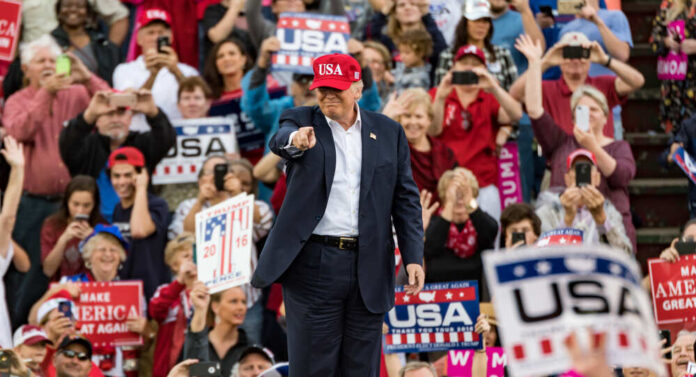
Special counsel John Durham released his long-awaited report this month, concluding that the FBI should not have launched its probe into alleged Russian collusion by Donald Trump’s 2016 presidential campaign.
Although the report was filled with damning accusations about the actions of federal investigators, much of the mainstream media dutifully downplayed Durham’s findings.
One exception was CNN anchor Jake Tapper, who acknowledged on Monday that the investigation was “devastating to the FBI, and to a degree it does exonerate Donald Trump.”
That simple assessment of the Durham report was enough to send anti-Trump pundits into a frenzy, including former MSNBC host Keith Olbermann, who insisted that Tapper should resign as a result.
CNN's new scandal:@jaketapper says the Durham Report is "devastating to the FBI"
It isn't. Not even close. No charges, just partisan "conclusions." And Tapper of the new non-journalistic Chris Licht CNN is propagandizing
Jake Tapper needs to resign pic.twitter.com/EcJo6qwfA3
— Keith Olbermann↙️ (@KeithOlbermann) May 15, 2023
A number of reporters from across the political spectrum defended Tapper, though, responding to Olbermann’s tweet in part by bringing up his own track record of disseminating unproven accusations about the former president.
For his part, independent journalist Matt Taibbi declared that Tapper’s commentary was correct, adding: “And the report isn’t just devastating to the FBI, it’s devastating to media figures who ran bogus stories that were either leaked by the Bureau, or laundered through it.”
Even leftist writer Eli Lake weighed in, using the name of Olbermann’s now-canceled show — “The Resistance” — to make his point.
“This is the first resistance in the history of resistance to align itself with a federal police force,” Lake wrote, asserting that calling Olbermann “a buffoon is an insult to buffoonery.”
While there were some reporters and social media users who agreed that the Durham report was essentially meaningless, those on both sides of the aisle who read it with an open mind concluded that its contents laid out a pattern of misdeeds in the handling of the Trump probe.
Specifically, Durham wrote that the FBI and the Justice Department “failed to uphold their mission of strict fidelity to the law” by relying on “raw, unanalyzed, and uncorroborated intelligence” to investigate claims of election interference.
The report concluded that federal investigators “did not and could not corroborate any of the substantive allegations” that were included in the notorious dossier compiled by ex-British spy Christopher Steele.














